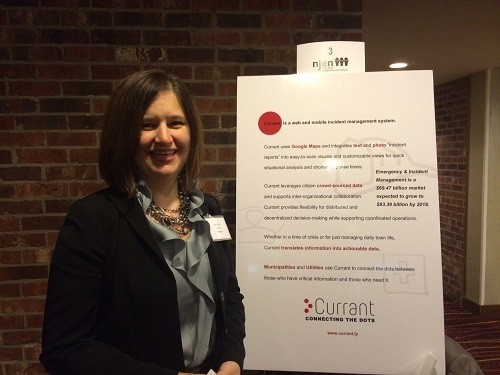Startup Roundup: Epion Health, ThinkHome, Currant

Epion Health: In September, Hoboken-based Epion Health said that it had raised about $7 million in follow-on funding from Deerfield, which had provided the company with $4.5 million last year. The growth capital will help “Epion Health expand its team of employees to support new enterprise-level accounts,” CEO Joe Blewitt told MedCity News in a phone interview. We first covered Epion back in 2012, when the company won a Startupalooza event hosted at NJIT.
In 2014, Epion partnered with Athenahealth’s More Disruption Please program. The two companies said they’d work together to link Athenahealth’s network of more than 52,000 health care providers with the capabilities of Epion Health to streamline patient check-in.
Epion has a tablet-based automated intake system for doctors. The company offers a Software as a Service patient-engagement platform at the point of care, beginning with the patient’s check-in. By replacing outdated clipboards and paper forms with an interactive, digital intake process, Epion increases record accuracy and operational efficiency, and engages patients with tools to improve outcomes, according to the company website. This service deeply integrates with electronic medical records and practice management systems to reduce administrative costs while improving outcomes and patient satisfaction.
ThinkHome: ThinkHome.com(Bernardsville), a startup launched Oct. 5 by Raj and Rahul (last names withheld on request), aims to help home buyers make smarter decisions and to enhance the productivity of real estate agents. The founders, who have extensive experience in real estate, said that current home websites don’t offer buyers any assistance in “searching for homes based on critical factors such as commute time to work location, school ratings and affordability parameters such as available down payment and mortgage budget.” ThinkHome.com is addressing the gaps by modeling its search engine around these fundamental factors, using the founders’ patent-pending technology.
Analytics is big in the ThinkHome product. Raj and Rahul pay special attention to non-value-adding costs such as property taxes and commuting expenses, and they assign a “ThinkHome Score” to each qualifying home. A higher score implies lower property taxes and commuting costs.
“This means that more of user’s monthly payment is going towards building equity in the home,” the founders said. “By default, every user’s search result is sorted by the ‘ThinkHome Score.’ In short, the topmost home in every user’s search result is not only within the specified commute time, school rating preference and affordability parameters, but it also indicates the best bang for the buck.”
For real estate agents, ThinkHome will help shortlist properties that match a prospect’s requirements, saving the agents time, the founders noted.
Currant: Based at the NJIT Enterprise Development Center, in Newark, Currant launched its website this month. The company is led by founder Denise Spell, who intends to revolutionize emergency response in times of crisis.
The CurrantGRID incident management system is capable of delivering support for disaster response and recovery, command center operations and VOSTs (Virtual Operations Support Teams), as well as for everyday municipal management, according to Spell. It integrates new technologies to leverage social reporting, work flow, team management and GPS-enabled mapping. CurrantGRID is available anywhere from any device, she added.
The app is aimed at a variety of constituencies. For utility companies, for example, the app provides crews with real-time field data, integrating “incident reports” into Google Maps to provide comprehensive, customizable, and detailed views that enable quick situation assessment and decreased response times.
Municipalities can use it as an “all-hands incident management system” to “connect the dots” between municipalities, utilities, responders, agencies and communities to improve day-to-day communication and emergency response. Emergency management personnel will benefit from features that transform crowd data into reliable, actionable information; ensures credibility; contributes to effective decisions; and improves damage assessment and response time.
Spell has been working on this startup for several years, and is now ready to demonstrate the system’s capabilities in the real world. She reports that the company has three pilot customers, one of which is the historic city of Prizren, Kosovo, the second largest city in that country.

